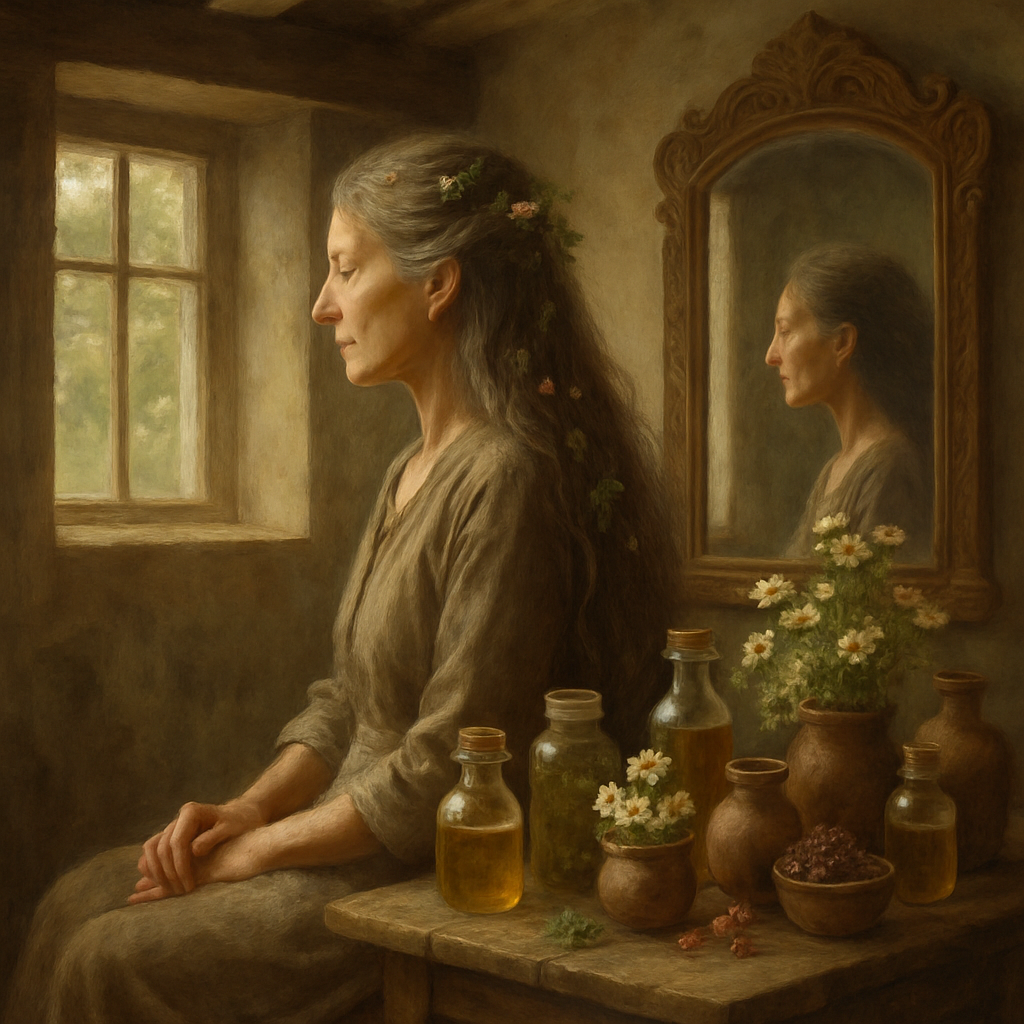
Taking care of our hair has been a concern since humans first caught sight of their reflections. The quest for luscious locks isn’t just a modern obsession; it stretches back to ancient civilizations that had their own unique and sometimes peculiar hair care rituals. The fascinating part is, many of those age-old techniques are making a comeback today. Maybe it’s the allure of the natural or perhaps it’s just curiosity, but exploring these ancient secrets can sometimes feel like hair care archaeology.
For centuries, people have been experimenting with ingredients found in nature. The Egyptians, for example, were known for their love of castor oil, using it to heal and condition both skin and hair. Cleopatra herself was rumored to have used almond oil to keep her hair healthy. They had a knack for using what was available their own version of DIY hair care, if you will. And while I’m not suggesting we all start wearing wigs like the pharaohs, their approach to using oils has certainly stood the test of time.
Digging into Ancient Practices
Venture a bit east to ancient India, and you’ll find the tradition of Ayurveda, which has been around for thousands of years. This holistic approach to health and wellness emphasizes balance, and hair care is no exception. For instance, a lot of Ayurvedic hair treatments involve oils like coconut and sesame. These aren’t just for frying your Friday night stir-fry; they’re believed to nourish the scalp and hair, promoting growth and shine. The practice of oiling hair, or “champi,” is a tradition that involves massaging oils into the scalp something I’ve tried on a lazy Sunday afternoon with some surprisingly zen results.
Then there’s the Roman and Greek penchant for vinegar rinses. Yes, the humble vinegar you might drizzle on your chips was used to cleanse the hair and add shine. It’s kind of funny to think of Socrates or Julius Caesar with their hair doused in vinegar, but hey, it worked for them. Apple cider vinegar is still a favorite for many who swear by it for reducing scalp issues and adding a glossy finish. Just a heads up though: the smell can be a bit much, so maybe save it for a day you’re not planning to socialize extensively.
Surprising Finds in Hair History
Now, let’s not forget the Chinese empresses who were known for their black, silky tresses. They used a blend of rice water, which is making a trendy comeback today. You might have seen DIY enthusiasts on YouTube talking about its benefits. The fermentation of rice water is said to release a compound called inositol, which can penetrate damaged hair and repair it from the inside out. I tried this once, and while I didn’t immediately feel like a runway model, my hair did seem a bit bouncier. Maybe it’s the placebo effect, or maybe there’s something to it.
Oh, and speaking of surprising finds, did you know that the Vikings were pretty particular about their grooming? They used various herbs and even ashes to clean their hair. Now, I’m not suggesting you start adding firepit remnants to your hair care routine, but it’s a quirky little tidbit that shows how resourceful people were back then.
Modern Applications of Ancient Wisdom
Incorporating these ancient techniques into modern routines can be both simple and rewarding. Take henna, for example. Used in ancient Egypt and India for dyeing hair and conditioning it, henna is still popular today. It’s a natural way to add color without the chemical damage of traditional dyes. I used it once, thinking I’d end up with a subtle hue, but my hair turned out a much brighter red than expected. Lesson learned: always do a patch test.
Then there’s the use of honey from ancient Greek beauty regimens. Known for its moisturizing properties, honey can be combined with other ingredients like yogurt for a nourishing hair mask. It’s sticky business, but if you’re patient, it can leave your hair feeling soft and hydrated.
Modern hair care brands often pick up these ancient ingredients and turn them into sophisticated products, blending science with tradition. For example, argan oil from Morocco has become a staple in many shampoos and conditioners. It’s hard to imagine a time before this “liquid gold” became a household name, but for the Berbers, it’s been a part of life for centuries.
A Word on Natural Hair Care
While all these natural ingredients sound wonderful, it’s important to remember that not everything works for everyone. Hair types vary, and what worked for Cleopatra might not work for someone with fine, straight hair. Experimentation is key, and sometimes it takes a bit of trial and error to find what suits your mane.
One might wonder if these ancient techniques are just a passing fad or if they’re here to stay. Personally, I believe that as people become more conscious about what’s in their products, we’ll continue to see a mix of old and new in hair care. It’s fascinating to think that something as simple as oiling your hair or rinsing it with vinegar connects us to people who lived thousands of years ago.
And maybe it’s just me, but there’s something comforting about using methods that have been around for so long. It’s like a nod of respect to the folks who figured out how to make do with what they had, creating rituals that were as much about self-care as they were about vanity.
In the end, whether you choose to embrace these ancient secrets or stick to your trusty shampoo and conditioner, it’s all about what makes you feel your best. Hair care, much like life, is a personal journey messy, unpredictable, and sometimes full of surprises.

